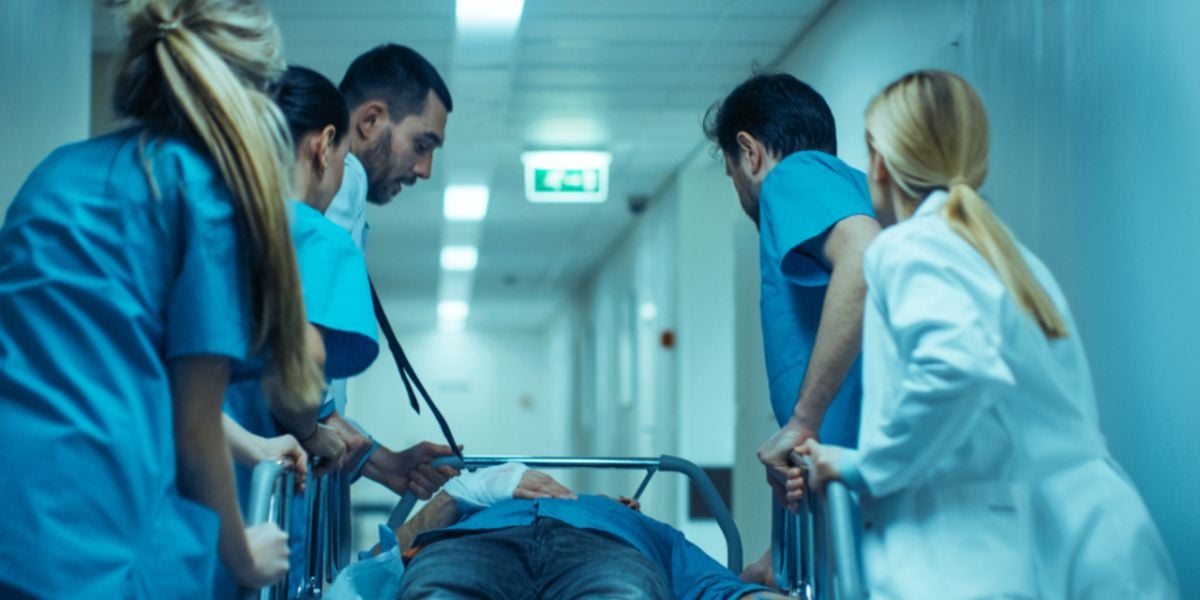
Portugal is a generally safe country to visit and settle in, showcasing low crime rates, a developed infrastructure and accessible healthcare. Thus, your stay in Portugal should (no matter how long) be comfortable, enjoyable and safe. With that, in the unfortunate event of running into an emergency, it's always better to be prepared. It's important to know who to call and how to deal with an emergency – and this is what we will cover below.
Health emergencies in Portugal
If you are having a health emergency, you should call 112—this is the equivalent of 911 in the US and 999 in the UK. The number 112 is also a general emergency number used across Europe, and all 112 calls are toll-free.
Note, however, that a call to 112 won't guarantee that you will be sent an ambulance—this only happens if you are facing a life-threatening emergency. Moreover, if you don't speak Portuguese, just let the operator know that right away so that you may be forwarded to someone who speaks English.
You will need to offer the following information:
- Type of emergency;
- The number you are calling from;
- Where you are calling from;
- Who needs assistance: age, gender, current state, etc.;
- If there is any additional assistance required in this emergency (if it's a traffic accident, a fire, etc.).
The operator will then advise you on the best course of action.
If you need to visit the ER but it is not a life-threatening situation, you must call the SNS24 number at 808 242 424—a 24-hour helpline managed by the Ministry of Health. They will ask questions about your situation and take care of the triage. Once the process is complete, they will inform you of the hospital to visit and the appointment time, so that patients do not clog the ER offices and wait in the comfort of their own homes. Once again, calls are toll-free.
Note that even if you are enrolled in the SNS, you may still need to pay specific fees (called Taxas Moderadoras). These range from € 2.50 to € 40.00 and usually apply to ER visits without any previous screening or NHS referral. Still, there are plenty of patients who are exempted from paying these fees, such as children under 12, pregnant women, blood/organ donors, patients with a disability degree of over 60%, and people under financial stress (it depends on household income, and an official document provided by the Social Security Services is required). Be that as it may, it is always a good idea to check about possible costs prior to your visit.
Finally, Portugal has 24-hour pharmacies that are open all night. Make sure to locate such a pharmacy in your area and have the address ready in case of emergencies.
Safety and crime rates in Portugal
According to the 2024 Global Peace Index, Portugal is the 7th safest country in the world. Official stats disclosed by the Home Safety Annual Report (Relatório Anual de Segurança Interna – RASI) recorded a 4.6% drop in crime reports in 2024, compared to 2023. Nonetheless, violent crime went up by 2.6%. Still, Portugal remains one of the safest countries in Europe (and the world), although crime perception among the population is getting higher and higher. This can be attributed to the over-sensationalism of news in papers, TV reports, social media, and politics.
As of now, no official data seems to point to the safety situation in Portugal getting any worse. Portugal still has a rather low crime rate, and violent crime is very rare, though it's always best to keep your wits about you (as you would anywhere else in the world). Pickpocketing can occur in public transportation and busier tourist areas, which is why it is essential to always keep a close eye on your belongings and never leave them unattended.
Another more frequent issue is the theft of belongings from vehicles, since perpetrators may pop car locks, doors and trunks and take personal belongings from within the vehicle. This is why it is strongly advised to take any valuables out of your car or at least keep them out of sight.
To call the police in Portugal, use the 112 emergency number we've already referred to above.
Road safety in Portugal
When it comes to road safety, the situation in Portugal has significantly improved in recent years. The country used to have a rather high rate of road fatalities per inhabitant, but the Portuguese government has taken measures to address it. Thanks to improvements in the road network, road safety awareness campaigns, tougher controls and penalties, Portugal is now a safe place to drive.
In case you do get into a road accident in Portugal, what you should do depends on the specifics of the accident. If no one has been hurt, you can simply exchange insurance information and be on your way. If there is a disagreement with the other driver or drivers, do not sign any documents and wait until the traffic police arrive. You can call them on 112, and you will be forwarded to the proper traffic division.
Useful numbers:
Emergency Services: 112
24/7 Public Healthline: 808 242 424
We do our best to provide accurate and up to date information. However, if you have noticed any inaccuracies in this article, please let us know in the comments section below.








